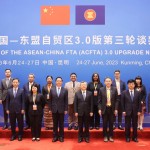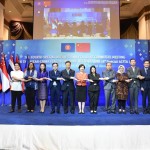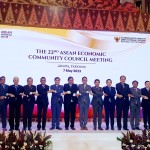Tổng số bài đăng 465.

On September 2, the European Union finally signed a Partnership and Cooperation Agreement (PCA) with Thailand, the sixth agreement with a Southeast Asian country.
The deal could provide the impetus needed to restart negotiations on a full Free Trade Agreement. The PCA, which is still awaiting formal approval, improves bilateral relations on many issues. Brussels sees this as another step in the way of promoting relations with ASEAN countries, an increasingly important region economically and geopolitically for the bloc. Negotiations on the EU-Thailand Free Trade Agreement (ETFTA) were launched in March 2013 but stalled following a military coup in Bangkok in May 2014, following which relations between the two parties remained frozen for several years. The coup also left the original PCA deal limited - more restrictive than a full free trade deal - agreed to in 2013.
The European Council, the EU's main decision-making body, gave the green light at the end of 2019 to restart formal talks once again following a long-delayed general election in Thailand, the elections were won by the military leaders who took power in the coup. The first round of preparatory negotiations for the revised PCA began last July. It was concluded after this Saturday's meeting in June. The two sides have also extended the negotiations regarding a possible EVFTA. The European External Action Service (EEAS), responsible for EU foreign and defense policies, said in a statement that the PCA would strengthen political dialogue on global issues of concern. and will expand the scope of mutually beneficial cooperation in many policy areas.
It will be a roadmap that will positively shape the EU-Thailand relationship in the coming years. Guillaume Rebiere, executive director of the European Business and Trade Association in Thailand, said the PCA was an "important vehicle for strengthening dialogue in the economic and trade sphere". Bilateral goods trade between the EU and Thailand has grown to €35.4 billion ($35.16 billion) in 2021, up from €29.3 billion the year before. The EU is the second largest investor in Thailand. Thailand is an important commercial and political partner, so this agreement is also important in strengthening the EU's role in Southeast Asia. Both businesses and investors will be encouraged by the signing of this agreement. For Thailand, which has long depended on tourism, the decline in Chinese visitors since the pandemic has forced the country to rethink its reliance on Beijing and find other sources of growth. Bangkok is also aware of the need to seek trade links with the US and China, two of its main partners. Expanding access to trade and investment with the EU, the world's largest economic bloc, is part of that strategy.
The EU is also hot for Thailand as it seeks to diversify amid rising geopolitical risks and as Brussels increasingly sees Beijing as a competitor. The willingness to negotiate with Thailand through the signing of the Framework Agreement is part of an increasingly closer relationship not only with Thailand but also with the rest of Southeast Asia and India. In December, the European Union and ASEAN will host their first national leaders' summit in Brussels, a milestone in relations between the blocs and the 45th anniversary of the establishment of ties in the region this year.
Completing the PCA could also indicate that both sides are moving closer to an FTA, which would be the third agreement the EU has signed with a Southeast Asian country after the agreements. Vietnam signed a similar PCA with the EU in 2015, four years before the landmark FTA was approved. The EU and Thailand are not particularly close economically, compared to China, the US, or other ASEAN members, so this is a diversification tactic for both sides and reflects the growing importance of Southeast Asia on global trade with other countries.
Source: Công Thương News












